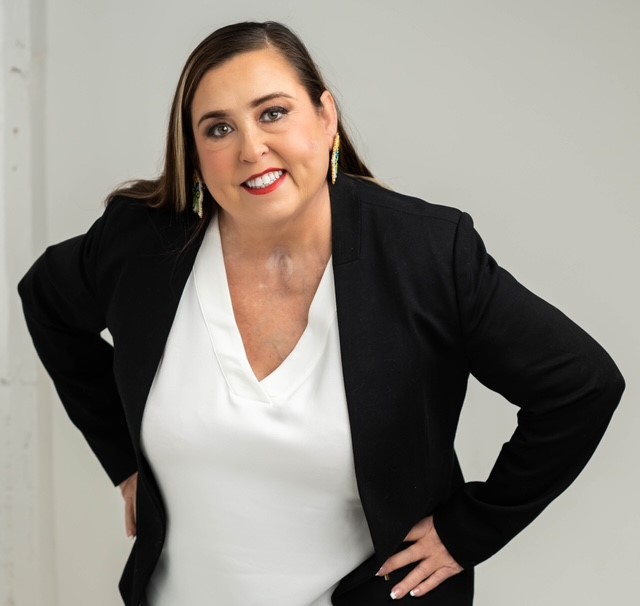
- Details
- By Jamie Miller, Special to Tribal Business News
- Indigenous Entrepreneurs
Marni King’s career path began far from the boardroom. A member of the Menominee Indian Tribe of Wisconsin and Oneida Nation of Wisconsin, she started in a meatpacking plant before becoming a certified nursing assistant while pursuing a nursing degree. From there, she transitioned to insurance at Humana, where she earned six promotions in nine years.
Today, as vice president of employee benefits at USI Insurance Services, she specializes in Native businesses and Native-serving nonprofits.
King’s accomplishments and leadership recently earned her recognition as a finalist for The Top 50 Women Leaders of Milwaukee for 2025. She credits her career for helping her overcome intergenerational trauma and support her daughter’s education while making a difference in the Native community.
Tribal Business News spoke with King recently for this first installment of the In Service series.
The conversation has been edited for clarity and brevity.
What drew you to working in professional services, and how did you find your way into this role?
I grew up in a small town on the edge of the Menominee reservation. I moved to Green Bay in my early 20s and I got a job at a meatpacking plant. Then I had my daughter when I was about 23, and it put life in perspective really quickly. I decided to go to school to get my nursing degree, and I worked as a CNA. A lot of nurses I worked with started leaving the nursing home to work at Humana and I was told it was no weekends and no holidays. So I looked into Humana, and I found out that there was an entry-level type position called medical risk assessment. I started there, and in nine years, I got six promotions.
Eventually, I decided I was at a point in my life where I wanted a company that was going to support me in doing what I really have passion for. What I really envisioned is that I would come to HUB and help build out the tribal insurance specialist space, and they were supportive of that. So I spent six years at HUB. Then, I joined USI, and I told them that I'd like to focus in the tribal space again — so that's where I am.
Why do tribes, enterprises, or entrepreneurs hire you? What do they expect from someone in your field?
I know this space like the back of my hand and I'm very passionate about it because this is where I'm giving back. I'm bringing all my experience to work specifically with tribes and give back. I saved one tribe almost a million dollars, and when I did that, I knew that that money was going back into that tribe's community. And that's what makes my heart beat.
Can you share one project or client experience you’re especially proud of — what did it involve, and why was it important for the client or community?
I have a Native focused nonprofit that I work with, and they lost a million dollars in funding. They are a small organization. They're doing really good work with trafficked women and mental health services, and they lost a million dollars in funding. The first thing I said was, let me look at your insurance. We made some big changes in their plans, and it's not a million dollars, but it was $20,000 in savings for a small organization.
What are the biggest challenges you see Native communities facing in your area of expertise?
I would say that the number one thing in the insurance space is the health disparities. A lot of health insurance costs are based on health conditions and high-cost claimants. Unfortunately, Native Americans are more prone to diabetes, cancer and mental health issues. A lot of that, in my mind, comes from poverty. Our tribal clinics are underfunded by 50% to 60% even though we traded our land for healthcare, for housing and for food, yet we are completely underfunded.
What’s the secret to hiring Native professionals in your industry—what should tribes or entrepreneurs look for?
What I did at HUB, and I hope to do at USI, is to start going to tribal colleges. There are so many people that are at tribal colleges now, and whether they're getting a business degree or whatever it might be, I can tell you that almost everybody that's in the insurance industry didn't go to college for what they're doing here in insurance.
What advice do you have for individuals looking to enter the industry?
I came from the reservation. I had nothing … three sets of clothes, a car and a job. That's all I had. Find out what jobs are available. If you can get an entry level role, you can grow.
In Service is a new recurring series that highlights Native executives in professional services — law, banking, accounting, insurance, consulting and related fields — who work with tribes, tribal enterprises and Indigenous entrepreneurs. Know someone who should be featured? Contact [email protected].